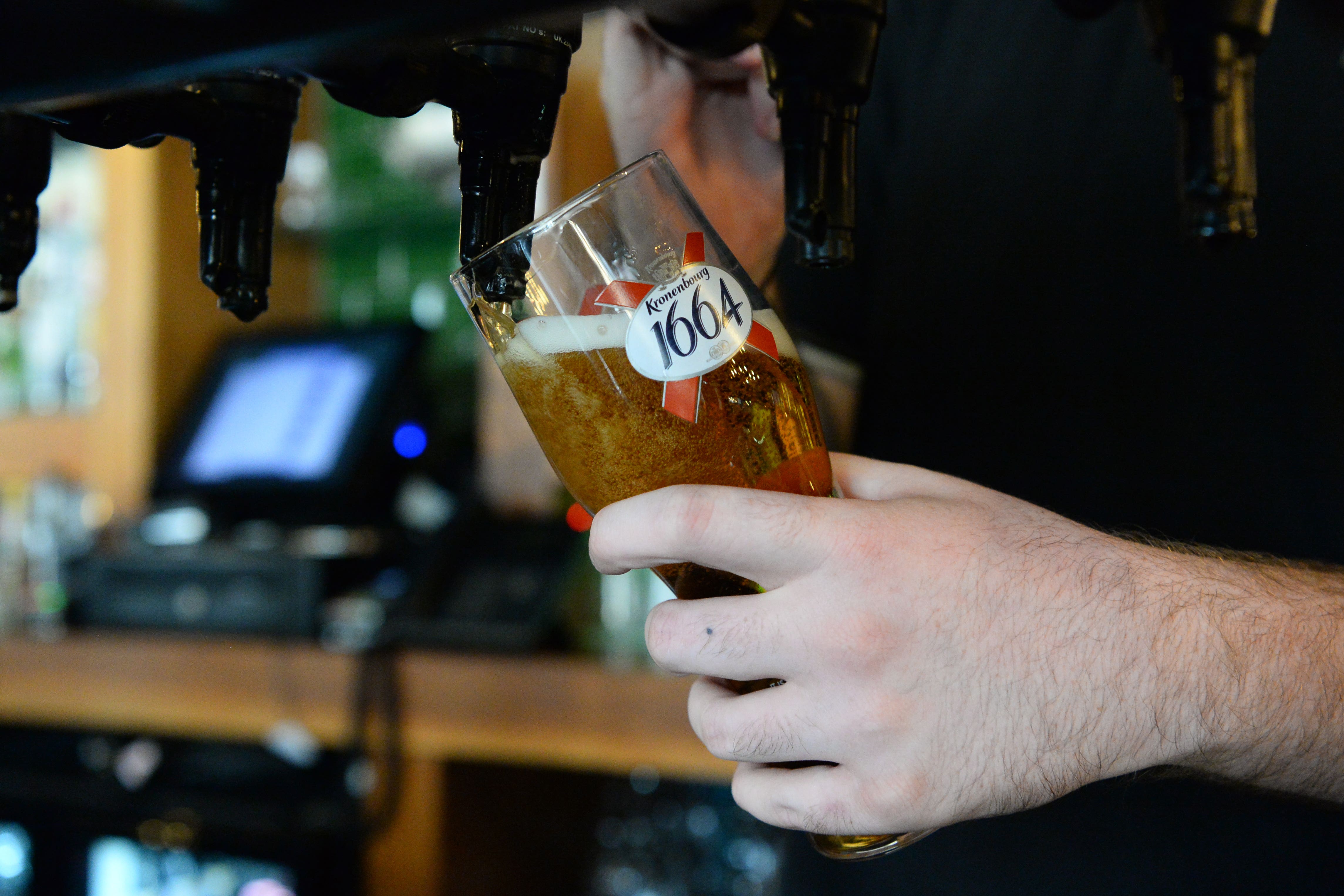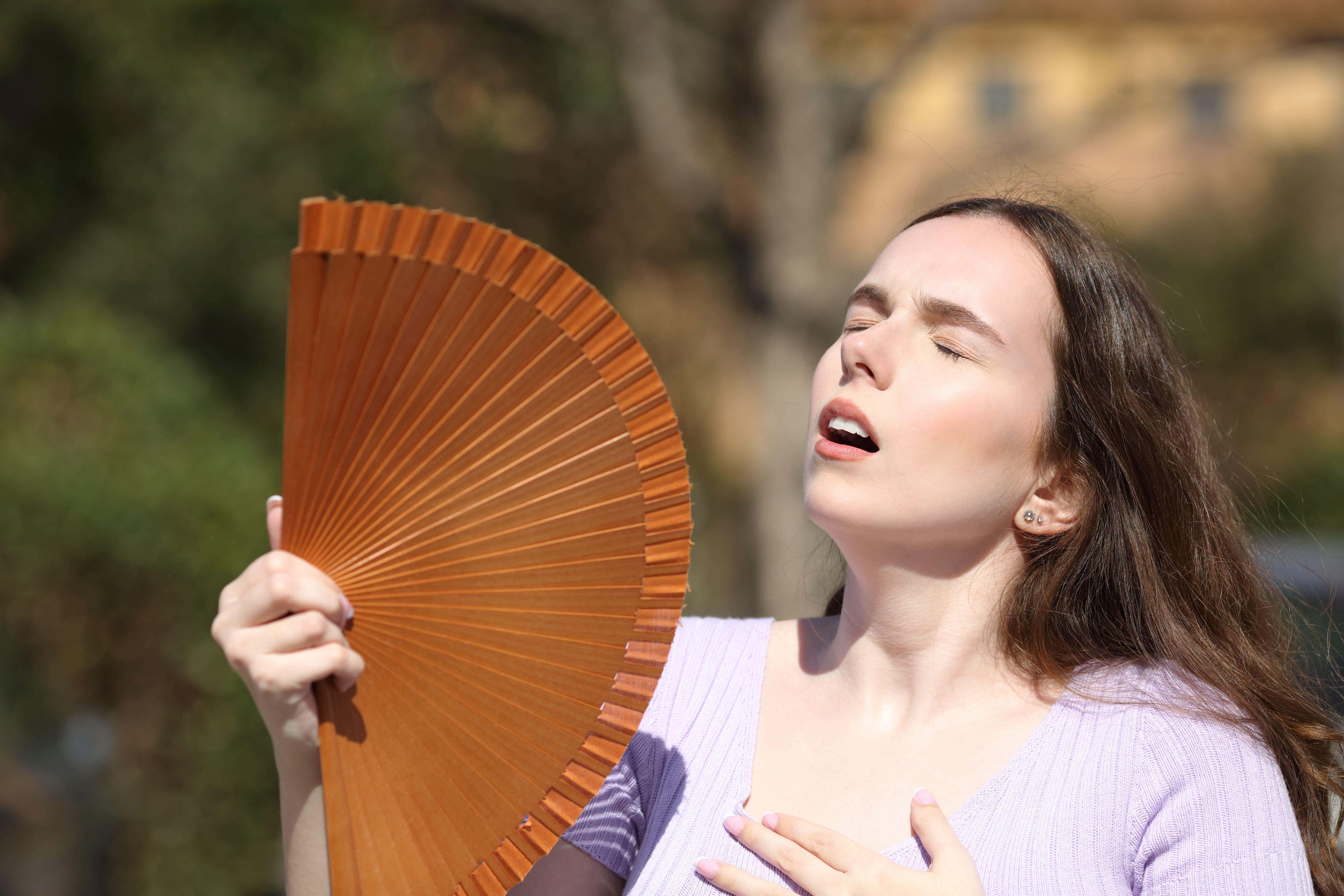Nearly 600 deaths are expected across England and Wales due to the current heatwave, scientists have warned.
Researchers from the London School of Hygiene and Tropical Medicine and Imperial College London estimate around 570 excess deaths between Thursday and Sunday, based on historic mortality data.
The new research follows a World Weather Attribution (WWA) research group study which found the heatwave has been made about 100 times more likely and 2-4C hotter due to climate change.
Temperatures could reach 30C on Saturday, following highs of 29C in Coningsby, Lincolnshire, on Friday, according to the Met Office.
It comes as a second amber heat health alert in two weeks came into force on Friday.
The alert, which covers London, the East Midlands, South East, South West and East of England, will last until 6pm on Tuesday.
Here, The Independent looks at how you can keep yourself safe during a heatwave:
Prevent dehydration
The government advises staying hydrated during hot weather by drinking fluids regularly throughout the day, particularly if you are active.
Water, diluted squash and lower-fat milks are recommended. While fruit juice, smoothies and soft drinks can seem refreshing, they often contain high levels of sugar, which may contribute to dehydration.
It’s best to limit how much of these you consume and opt for diet, sugar-free or no-added-sugar alternatives instead.

If you’re heading out, take a refillable bottle of water with you, and carry extra if travelling by car or public transport.
Alcohol can dehydrate the body, so choosing alcohol-free drinks or alternating alcoholic drinks with water is advised.
Protect yourself from the sun
The sun in the UK is strong enough to cause sunburn, with children especially vulnerable to skin damage.
To reduce your risk, follow these sun safety measures:
- Stay in the shade between 11am and 3pm, when the sun is at its strongest
- Wear loose, light-coloured clothing made from tightly woven fabric, such as long-sleeved shirts, trousers or long skirts
- Protect your head, neck, face and ears with a wide-brimmed hat

- Use sunglasses to shield your eyes from the sun
- Apply sunscreen generously and top it up regularly, especially after swimming or using a towel. The NHS recommends using sunscreen with a sun protection factor (SPF) of at least 30 and a UVA rating of four or five stars.
How to keep your home cool
Homes can become uncomfortably warm during hot weather, especially at night when trying to sleep.
To keep indoor temperatures down, consider the following steps:
- Keep blinds and curtains closed on windows that face direct sunlight during the day
- If your home has external shutters or shades, keep them closed too
- Try to sleep or rest in the coolest part of the house
- When it’s cooler outside than indoors, typically during the night, open windows if it is safe, and create a cross-breeze to help air circulate

- Use electric fans if the indoor temperature is below 35C, but avoid directing airflow straight at your body, as this can contribute to dehydration
- Make sure heating systems are switched off
- Turn off any lights or electronic devices not being used, as they can generate extra heat
- If the temperature outside is cooler, especially in shaded areas, consider spending time outdoors
Public spaces such as places of worship, libraries or supermarkets may be cooler than your home. If they are nearby, visiting one can offer a helpful break from the heat.
How to spot heat exhaustion and heat stroke
Heat exhaustion happens when the body gets too hot and struggles to cool down. It’s not usually serious if you cool down within 30 minutes, but if untreated, it can develop into heatstroke, according to the NHS.
Signs of heat exhaustion include:
- Tiredness or weakness
- Dizziness or feeling faint
- Headache
- Muscle cramps
- Nausea or vomiting
- Heavy sweating
- Strong thirst

Heatstroke is more serious and occurs when the body’s temperature rises to dangerous levels and can no longer cool itself.
Symptoms include:
- Confusion or disorientation
- Loss of coordination
- Rapid heartbeat
- Fast breathing or shortness of breath
- Hot, dry skin (not sweating)
- Seizures
Heatstroke is a medical emergency. Call 999 immediately and try to cool the person down while waiting for help.
Who is most at risk during hot weather?
While anyone can feel unwell in the heat, some people are more vulnerable. These include:
- Older adults, especially those aged 65 and over
- Babies and young children under five
- People with long-term health conditions such as heart or lung problems, dementia, diabetes, kidney or mobility issues
- Those taking certain medications or living with serious mental health conditions
- Anyone already unwell and dehydrated, for example, due to sickness or diarrhoea
- People who are dependent on alcohol or drugs
- Individuals who are very active outdoors, such as runners, cyclists or manual workers
- Those without stable housing, including rough sleepers or people in temporary accommodation
- People living alone who may struggle to look after themselves during extreme heat



